 Your new post is loading...
 Your new post is loading...
Privacy-centric search engine DuckDuckGo is working on an "everyday" desktop browser, according to CEO Gabriel Weinberg. In a blog post, Weinberg said the company is building a desktop app "from the ground up" using OS-provided rendering engines rather than Chromium, the browser codebase underpinning Google Chrome, Microsoft Edge, and other browsers. - This will allow DuckDuckGo to "strip away a lot of the unnecessary cruft and clutter that's accumulated over the years in major browsers," Weinberg said.
- The CEO noted that the browser will have default “robust privacy protection," meaning users won't have to turn it on in security settings.
- Like its mobile version, the desktop browser will also contain a Fire button to erase stored data, tabs, and browsing history.
- Early tests have shown the browser is “significantly faster” than Google Chrome, he claimed. It's now in closed beta testing on macOS, with no announced release date yet.
- Also in the blog post, Weinberg went through the company's achievements in 2021. One of those was reaching 150 million downloads of its privacy apps for iOS and Android and Chromium extensions.
Open Compute Project (OCP), the open source hardware group created by Facebook to share designs for hyperscale hardware to the data center community, has announced that Google has taken a seat on the board. Google first joined the OCP in 2016, and has helped develop OCP technology designs, including the Open Rack standard, designed to deploy high density servers in a smaller footprint. OCP announced at its virtual Summit yesterday, that Google is now an Executive Member, which grants it a seat on the board of directors, to be occupied by Parthasarathy (Partha) Ranganathan. Microsoft's Kushagra Vaid also joins the OCP board.
Researchers trained a neural network to map audio “voiceprints” from one language to another. The results aren’t perfect, but you can sort of hear how Google’s translator was able to retain the voice and tone of the original speaker. It can do this because it converts audio input directly to audio output without any intermediary steps. In contrast, traditional translational systems convert audio into text, translate the text, and then resynthesize the audio, losing the characteristics of the original voice along the way. The new system, dubbed the Translatotron, has three components, all of which look at the speaker’s audio spectrogram—a visual snapshot of the frequencies used when the sound is playing, often called a voiceprint. The first component uses a neural network trained to map the audio spectrogram in the input language to the audio spectrogram in the output language. The second converts the spectrogram into an audio wave that can be played. The third component can then layer the original speaker’s vocal characteristics back into the final audio output. Not only does this approach produce more nuanced translations by retaining important nonverbal cues, but in theory it should also minimize translation error, because it reduces the task to fewer steps. Translatotron is currently a proof of concept. During testing, the researchers trialed the system only with Spanish-to-English translation, which already took a lot of carefully curated training data. But audio outputs like the clip above demonstrate the potential for a commercial system later down the line. You can listen to more of them here.
Google just announced that it’s adding native support for Microsoft’s Word, Excel, and PowerPoint formats — like .docx, .xls, and .ppt — which will let you do real-time collaboration in Google Docs, Sheets, and Slides. Editing Microsoft Office files in Google Docs is a pain. You can view them there, but you’ve previously had to convert them to Google’s format before you could edit, comment, and collaborate inside Docs. That’s about to change: Google just announced that it’s adding native support for Microsoft’s Word, Excel, and PowerPoint formats — like .docx, .xls, and .ppt — which will let you do real-time collaboration in Google Docs, Sheets, and Slides. This morning, Google announced support would be coming to the commercial versions of those apps right now, namely G Suite, but the company now tells The Verge they’re coming to regular users too, as soon as this month. G Suite customers should see support start to roll out in April or May, depending on which release schedule your company prefers.
Apple shut down Google’s ability to distribute its internal iOS apps earlier today. A person familiar with the situation told The Verge that early versions of Google Maps, Hangouts, Gmail, and other pre-release beta apps stopped working alongside employee-only apps like a Gbus app for transportation and Google’s internal cafe app. The block came after Google was found to be in violation of Apple’s app distribution policy, and followed a similar shutdown that was issued to Facebook earlier this week.
TechCrunch and Bloomberg’s Mark Bergen reported late Thursday that the apps’ functionality had been restored; Apple appears to have worked more closely with Google to fix this situation. “We are working together with Google to help them reinstate their enterprise certificates very quickly,” an Apple spokesperson earlier told BuzzFeed.
APPLE BLOCKED FACEBOOK AND THEN GOOGLE
Apple’s move to block Google’s developer certificate comes just a day after Google disabled its Screenwise Meter app following press coverage. Google’s private app was designed to monitor how people use their iPhones, similar to Facebook’s research app. Google’s app also relied on Apple’s enterprise program, which enables the distribution of internal apps within a company.
In an earlier statement over Facebook’s certificate removal, Apple did warn that “any developer using their enterprise certificates to distribute apps to consumers will have their certificates revoked.” Facebook’s internal iOS apps have since resumed functioning, as the social network said this afternoon that Apple had restored its enterprise certificate.
Apple is clearly sticking to its rules and applying them equally to Facebook, Google, and likely many other companies that get caught breaking Apple’s rules in the future.
There’s growing evidence that a number of companies are using Apple’s enterprise program to distribute apps to consumers. iOS developer Alex Fajkowski has discovered that Amazon, DoorDash, and Sonos all distribute beta versions of their apps to non-employees. Apple may be forced to take action against these apps, or to even revamp its entire enterprise program in the future.
Update 1/31, 5:45PM ET: Article updated with comment from Google, Apple, and details on other companies using Apple’s enterprise program to distribute apps.
Update 1/31: 6:18PM ET: Updated with the news that Apple has resumed letting Facebook use internal iOS apps.
Update 1/31: 10:30PM ET: Updated with the news that Apple has restored functionality to Google’s apps.
Waymo, the Alphabet self-driving car company that was spun out of Google, is picking up speed. The company’s autonomous vehicles just drove 8 million miles on public roads. What’s more, it took the company just one month to go from 7 million miles to 8 million miles driven. “We’re driving now at the rate of 25,000 miles every day on public roads,” CEO John Krafcik said Friday while addressing the National Governors Association. Waymo’s acceleration in logging miles with self-driving cars has picked up in the last year. In November 2017, it crossed 4 million miles. Less than a year later it’s doubled that figure. Most of the miles are being driven in the Phoenix area where the company has been developing and testing an autonomous ride-share service using modified Chrysler Pacifica hybrid minivans. The company plans to launch that ride-share service to the public later this year in Arizona. Krafcik’s vision for the company is to partner with automakers, cargo operators and public transportation companies so they incorporate Waymo’s technology. Unlike automakers such as General Motors that are developing their own self-driving systems, Waymo has no plans to build its own vehicles. Instead, Waymo is looking to build “drivers,” systems that can safely steer vehicles without requiring a human to sit behind the steering wheel. “As we scale our business and have hundreds and thousands of Waymo drivers on the road, each one of those drivers is going to be exactly the same,” said Krafcik. “It’s going to be the world’s most experienced driver.”
One flying car seems absurd; Larry Page has three. He started with Cora, a two-seater flying taxi, then added a sporty flying boat called Flyer, both developed by a company called Kitty Hawk. And last week, The Vergediscovered a third: Opener, which just came out of stealth mode. There was no mention of the Google co-founder in the startup’s announcement, but when confronted with evidence of Page’s involvement, Opener quickly issued a press release admitting it. Flying cars (more formally known as eVTOLs — for electric vertical takeoff and landing) are the electric scooters of aviation. Everyone from Uber to Airbus is working to build the lightweight aircraft and the aerial networks they will require, to say nothing of a host of well-funded startups, including Joby in the US, Volocopter in Germany, and China’s EHang. Page is making his flying car companies compete for attention and funding Kitty Hawk and Opener are based just a few buildings away from each other in Palo Alto, California, but have almost no contact. In fact, their CEOs have to compete for Page’s attention and funding, according to multiple sources close to the companies. Workers at Kitty Hawk and Opener don’t know whether Page is simply hedging his bets with multiple aircraft, or embarking on a bold attempt to corner the market for flying cars as it emerges. The reason for multiple companies may be even more prosaic: the leaders of each project reportedly can’t stand each other. Regardless, Page now controls three of the world’s most advanced flying car projects, ahead of rivals like Joby, Uber, and aerospace giant Airbus, whose vehicles remain largely experimental.
New Bristlecone processor could deliver 'quantum supremacy' over traditional computing, researchers hope. Google's Quantum AI Lab has shown off a new 72-qubit quantum processor called 'Bristlecone', which it says could soon achieve 'quantum supremacy' by outperforming a classical supercomputer on some problems. Quantum supremacy is a key milestone on the journey towards quantum computing. The idea is that if a quantum processor can be operated with low enough error rates, it could outperform a classical supercomputer on a well-defined computer science problem. Quantum computers are an area of huge interest because, if they can be built at a large enough scale, they could rapidly solve problems that cannot be handled by traditional computers. That's why the biggest names in tech are racing ahead with quantum computing projects: in January Intel announced its own 49-qubit quantum chip, for example. "We are cautiously optimistic that quantum supremacy can be achieved with Bristlecone," said Julian Kelly, a research scientist at the Quantum AI Lab. "We believe the experimental demonstration of a quantum processor outperforming a supercomputer would be a watershed moment for our field, and remains one of our key objectives," Kelly said -- although he did not offer a timescale for this achievement.
Google, Facebook and Microsoft want more control over the internet’s basic infrastructure ON SEPTEMBER 21st Microsoft and Facebook announced the completion of a 6,600km (4,100-mile) cable stretching from Virginia Beach, Virginia, to Bilbao, Spain. Dubbed Marea, Spanish for “tide”, the bundle of eight fibre-optic threads, roughly the size of a garden hose, is the highest-capacity connection across the Atlantic Ocean. It is capable of transferring 160 terabits of data every second, the equivalent of more than 5,000 high-resolution movies. Such ultra-fast fibre networks are needed to keep up with the torrent of data flowing around the world. In 2016 international bandwidth usage reached 3,544 terabits per second, roughly double the figure in 2014. Firms such as Google, Facebook and Microsoft used to lease all of their international bandwidth from carriers such as BT or AT&T. Now they need so much network capacity to synchronise data across their networks of data centres around the world that it makes more sense to lay their own dedicated pipes. This has led to a boom in new undersea cable systems. The Submarine Telecoms Forum, an industry body, reckons that 100,000km of submarine cable was laid in 2016, up from just 16,000km in 2015. TeleGeography, a market-research firm, predicts that $9.2bn will be spent on such cable projects between 2016 and 2018, five times as much as in the previous three years.
How could Microsoft’s Windows Phone licensing business model stand a chance against Google’s Free and Open Android? None of the Redmond giant’s complicated countermeasures worked, its smartphone platform is dead. And yet, inexplicably, Microsoft failed to use a very simple move, one we’ll explore today.Just back from three weeks in the Country of Good Sin’s heartland, I see Microsoft’s fresh and well-received Fourth Quarter Fiscal Year 2017 Results. The numbers acknowledge what was already notorious: Windows Phone is dead. “Phone revenue was immaterial and declined $361M.” This doesn’t come as a surprise. Despite Microsoft’s strenuous efforts to breathe life into its smartphone platform and devices, Windows Phone had been on an inexorable downward slope for several years, confirming a Horace Dediu theorem[as always, edits and emphasis mine]: “As far as I’ve been able to observe, any company in the mobile phone market that ended up losing money has never recovered its standing in terms of share or profit.” Let’s recall that, in September 2010, Redmond employees held what CNET called a “tacky ‘funeral’” for iPhone and Blackberry. One wonders how they’ll memorialize Windows Phone. The gross failure of what once was the most powerful and richest tech company on the planet led to a search for a platform killer. Detectives didn’t think they had to go far to nab a suspect: Android. Microsoft’s Windows Phone was murdered by Google’s smartphone OS. How could Redmond’s money-making software licensing business model survive against a free and open source platform? Case closed. No so fast. Microsoft’s smartphone troubles started well before the birth of Android. In a reversal of the famous dictum Victory Has Many Fathers But Defeat Is An Orphan, Windows Phone’s collapse seems to have had many progenitors deeply embedded in the company’s decades-old culture. But before we look at facts, let’s engage in a bit of fiction, let’s imagine Microsoft decides to fight Android on Google’s turf. In this alternate reality, Microsoft easily kills Android with one simple headline: Windows Phone Now Free The rest of the pitch writes itself.
Amazon’s voice-controlled personal assistant is creating chaos for people called Alexis, Alex and Alexa; TV sitcom tried to order milk — Life has been complicated ever since Alexa Sussman and her parents started using Amazon's Echo and its built-in ‘Alexa’ assistant.“Alexa, stop!” Joanne Sussman screamed in her living room.Immediately, the computer living inside her Amazon Echo speaker stopped playing her favorite music station. Simultaneously, Mrs. Sussman’s 24-year-old daughter, Alexa, froze on the stairs.
Most people think of Amazon as an online shopping store, but it's actually much more than that. Over the past 22 years, Amazon has turned itself into a $275 billion juggernaut that sells everything from cloud-computing services to its own hardware gadgets. It will even be making approx $10 Bn in revenue this year from its cloud computing enterprise services. These 17 charts show just how scary its business really is.
Google's parent company - has surpassed Apple as the world's most valuable company after its latest earnings report.
|
After five years of offering unlimited free photo backups at “high quality,” Google Photos will start charging for storage once more than 15 gigs on the account have been used. The change will happen on June 1st, 2021, and it comes with other Google Drive policy changes like counting Google Workspace documents and spreadsheets against the same cap. Google is also introducing a new policy of deleting data from inactive accounts that haven’t been logged in to for at least two years. All photos and documents uploaded before June 1st will not count against that 15GB cap, so you have plenty of time to decide whether to continue using Google Photos or switching to another cloud storage provider for your photos. Only photos uploaded after June 1st will begin counting against the cap. Google already counts “original quality” photo uploads against a storage cap in Google Photos. However, taking away unlimited backup for “high quality” photos and video (which are automatically compressed for more efficient storage) also takes away one of the service’s biggest selling points. It was the photo service where you just didn’t have to worry about how much storage you had.
Two key Pixel execs, including the computer researcher who led the team that developed the computational photography powering the Pixel’s camera, have left Google in recent months, according to a new report from The Information. The executives who left are distinguished engineer Marc Levoy and former Pixel general manager Mario Queiroz. Queiroz had apparently already moved off the Pixel team two months before the launch of the Pixel 4 into a role that reported directly to Google CEO Sundar Pichai. However, he left in January to join Palo Alto Networks, according to The Information and his LinkedIn. Levoy left Google in March, which is also reflected on his LinkedIn.
AI can generate storyboard animations from scripts, spot potholes and cracks in roads, and teach four-legged robots to recover when they fall. But what about adapting one person’s singing style to that of another? Yep — it’s got that down pat, too. In a paper published on the preprint server Arxiv.org (“Unsupervised Singing Voice Conversion“), scientists at Facebook AI Research and Tel Aviv University describe a system that directly converts audio of one singer to the voice of another. All the more impressive, it’s unsupervised, meaning it’s able to perform the conversion from unclassified, unannotated data it hasn’t previously encountered. The team claims that their model was able to learn to convert between singers from just 5-30 minutes of their singing voices, thanks in part to an innovative training scheme and data augmentation technique. “[Our approach] could lead, for example, to the ability to free oneself from some of the limitations of one’s own voice,” the paper’s authors wrote. “The proposed network is not conditioned on the text or on the notes [and doesn’t] require parallel training data between the various singers, nor [does it] employ a transcript of the audio to either text … or to musical notes … While existing pitch correction methods … correct local pitch shifts, our work offers flexibility along the other voice
Google’s payment to Apple could be worth as much as 23% of Apple's services business.
La une de couverture de The Economist est tombée pile-poil à point pour ma keynote de demain !
Google’s Project Fuchsia OS has been shrouded in mystery for the past few years. It was discovered almost two years ago when the company began quietly posting code to its GitHub repository and expanded with an actual “Armadillo” system UI last year, but there’s been little to no information about what Google intends to do with Fuchsia. According to a new report from Bloomberg, the Fuchsia team’s goal is nothing less than creating a single, unifying operating system that could run on all of Google’s devices: replacing Android, Chrome OS, and powering all of Google’s smart home hardware. The time frame is similarly ambitious: the team hopes to release a connected home device powered by the new OS within three years to introduce Fuchsia before moving on to larger devices like laptops and phones within the next five years. It’s certainly an interesting idea that would give Google a second chance to build a more secure, easily updated OS to enable even better cross-platform integration than the current Chrome OS / Android divide. Security is also said to be something at the core of Fuchsia, which could help Google better compete with Apple’s more tightly locked down iOS, too.
Google will open an AI research center in Accra later this year, the company announced. Its the company’s first in Africa.
A file that Apple updated on its website last month provides the first acknowledgment that it's relying on Google's public cloud for data storage for its iCloud services. The disclosure is fresh evidence that Google's cloud has been picking up usage as it looks to catch up with Amazon and Microsoft in the cloud infrastructure business. Some media outlets reported on Google's iCloud win in 2016, but Apple never provided confirmation. Apple periodically publishes new versions of a PDF called the iOS Security Guide. For years the document contained language indicating that iCloud services were relying on remote data storage systems from Amazon Web Services, as well as Microsoft's Azure. But in the latest version, the Microsoft Azure reference is gone, and in its place is Google Cloud Platform. Before the January update, Apple most recently updated the iOS Security Guide in March. The latest update doesn't indicate whether Apple is using any Google cloud services other than core storage of "objects" like photos and videos. The document also doesn't make it clear when Apple started storing data in Google's cloud. Microsoft declined to comment. Apple didn't respond to a request for comment.
Google has announced it’s acquiring a $1.1bn chunk of HTC’s smartphone business, and with it providing the once leading Taiwanese phone brand a much needed lifeline. But what does Google want with part of a smartphone business?Google isn’t buying the whole of HTC, just a relatively large part of the Taipei-based company’s smartphone business and not its Vive virtual reality headset business. Google gains half of HTC’s research and development team – about 2,000 people – and a non-exclusive license for HTC’s intellectual property, allowing it to take advantage of some of HTC’s advances in smartphone technology.HTC gets a cash injection, which will help it survive in some very competitive markets, and Google gets to continue its “big bet on hardware” according to Rick Osterloh, the company’s senior vice president for hardware.It’s “a business decision to have access to one of the best R&D teams”, said Neil Shah, research director at Counterpoint Technology Market Research. But it’s also “a sort of emotional decision to save its close partners”.Little history of hardwareWhile Google is the creator of the Android operating system, which is now used on more than 2bn devices a month, or 89% of mobile devices according to IDC, it has only dabbled with making its own smartphones and tablets. It routinely partnered with firms such as HTC, LG and Huawei to make the Nexus series of a devices, which sold in low volumes and acted as showcases for each new version of Android.Google bought Motorola in 2011 for $12.5bn (£9.24bn), and while it ran it as a separate company selling smartphones aimed at the low end, the acquisition was really about a large stock of important patents.“Its main reasoning was to acquire Moto’s patent portfolio so as to protect against Apple (and Microsoft) while also providing stiffer competition to Samsung (although Google would never admit this),” said David McQueen, research director at ABI Research.Google sold Motorola to China’s Lenovo in 2014 for $2.9bn without the collection of patents.
Presque vingt ans après la naissance de Google, en 1998, il reste toujours des courageux pour vouloir concurrencer le géant de la Silicon Valley. Après Qwant, un autre moteur de recherche français, baptisé Xaphir, a discrètement été mis en ligne fin mars. « Google et ses alternatives, Baidu, Bing ou Yandex utilisent le PageRank, qui consiste à faire remonter les pages les plus populaires. L’utilisateur est enfermé dans une bulle de la connaissance qui l’empêche, par exemple, de voir qu’Arsenal n’est pas seulement un club de foot », explique Eric Mathieu, son PDG fondateur.
Xaphir est la contraction de la lettre « x » qui désigne l’inconnue en mathématiques et du saphir, la pierre précieuse, mais aussi le nom d’un livre de la connaissance qui, selon « une légende très ancienne », aurait été remis aux hommes par l’Eternel, précise l’entrepreneur. Ce moteur d’un nouveau genre entend ouvrir à l’internaute les portes du monde en lui offrant, pour chacune de ses demandes, des résultats de recherche très diversifiés.
« Un moteur humaniste »
L’internaute tape un mot-clef puis, en fonction des réponses, ajoute ou retire très simplement dans la boîte de recherche certains des résultats qui apparaissent, qu’il s’agisse de pages Web, d’images ou de vidéos. « Nous voulions sortir de la recherche par mots-clefs. Notre moteur permet de combiner “n” documents en “n” dimensions. Nous rajouterons ensuite la voix, les coordonnées géographiques, etc. », explique Eric Mathieu, qui présente Xaphir comme « un moteur humaniste », dont l’objectif est « d’offrir impartialité, diversité et universalité".
Google is running its own ride-sharing service in San Francisco, The Wall Street Journal reports. The move would put Google in direct, immediate competition with Uber, which helps explain even further the recent departure of Alphabet executive David Drummond from Uber’s board. Google’s new offering piloted in May, according to the WSJ, and uses the Google-owned Waze app to connect commuters for shared carpooling. The plan is apparently to open up said program to all San Francisco residents starting this fall, with an eye toward expanding it further provided that works out. And unlike Uber, this is more of a matchmaking service, which brings together riders with drivers headed in the same direction. Fees are going to be low, too — the report says Google is intentionally keeping them low to keep this a peer-to-peer co-driving arrangement, rather than something that professional drivers will want to use in a dedicated capacity, like Uber and Lyft. Waze’s operational model to date has focused on connecting drivers via crowdsourced navigation information. Users report things like accidents, roadside obstacles, storms and traffic jams, and these are immediately available to other drivers. Shortly after Google acquired Waze in 2013, it started using its crowdsourced navigation data in the primary Google Maps app, as well.
Half a decade ago, Jonathan Heiliger compared the world of Internet data centers to Fight Club. It was the spring of 2011, and the giants of the Internet—including Google, Amazon, and Microsoft—were erecting a new kind of data center. Their online empires had grown so large that they could no longer rely on typical hardware from the likes of Dell, HP, and IBM. They needed hardware that was cheaper, more streamlined, and more malleable. So, behind the scenes, they designed this hardware from scratch and had it manufactured through little-known companies in Asia. This shadow hardware market was rarely discussed in public. Companies like Google saw their latest data center hardware as a competitive advantage best kept secret from rivals. But then Facebook tore off the veil. It open sourced its latest server and data center designs, freely sharing them with the world under the aegis of a new organization called the Open Compute Project. “It’s time to stop treating data center design like Fight Club and demystify the way these things are built,” said Heiliger, then the vice president of technical operations at Facebook. Google was the first company to rethink data center design for the modern age. With the Open Compute Project, Facebook aimed to create a whole community of companies that would freely share their data center designs, hoping to accelerate the evolution of Internet hardware and, thanks to the economies of scale, drive down the cost of this hardware. That, among other things, boosts the Facebook bottom line. It worked—in a very big way. Microsoft soon shared its designs too. Companies like HP and Quanta began selling this new breed of streamlined gear. And businesses as diverse as Rackspace and Goldman Sachs used this hardware to expand their own massive online operations. Even Apple—that bastion of secrecy—eventually joined the project. Two big holdouts remained: Google and Amazon. But today, that number dropped to one. At the annual Open Compute Summit in San Jose, California, Google announced that it too has joined the project. And it’s already working with Facebook on a new piece of open source hardware.
|



 Your new post is loading...
Your new post is loading...



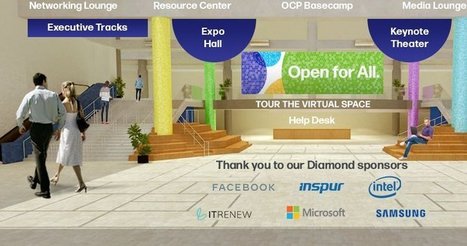

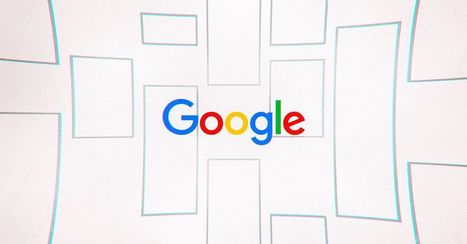
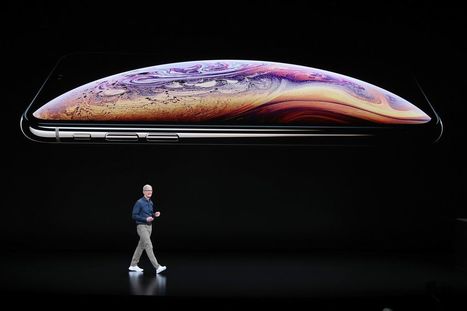





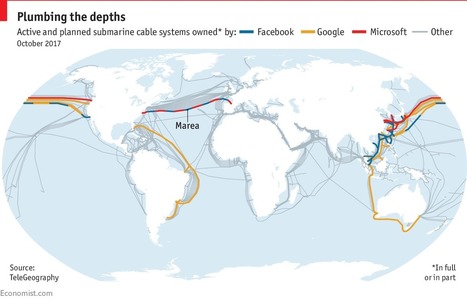

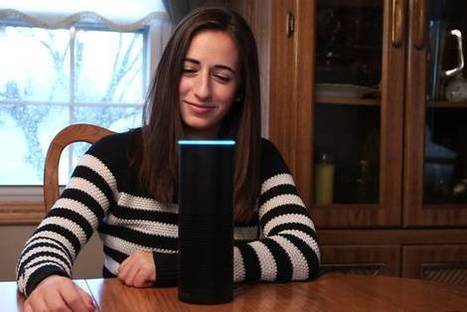
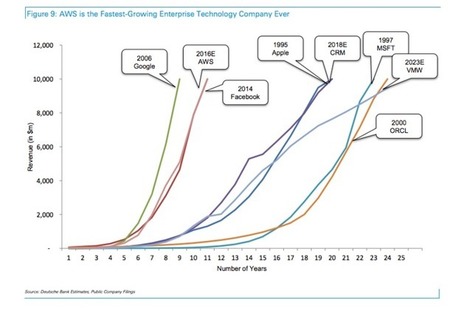



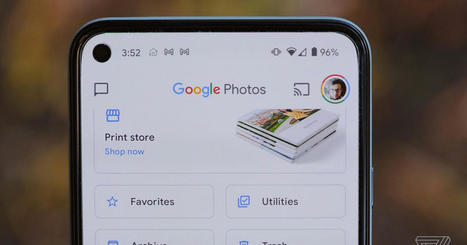


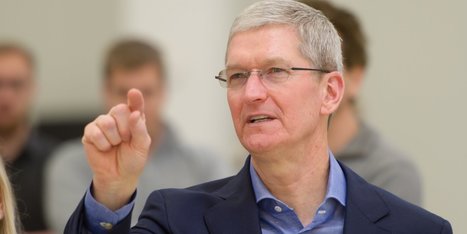
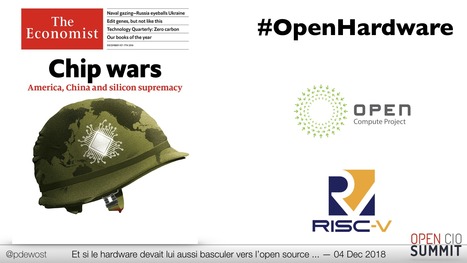
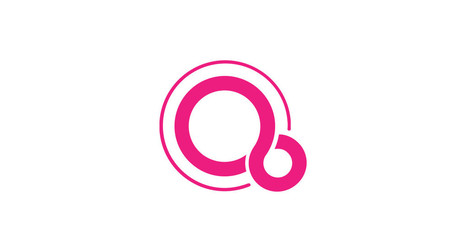
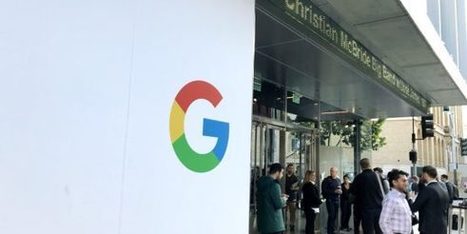
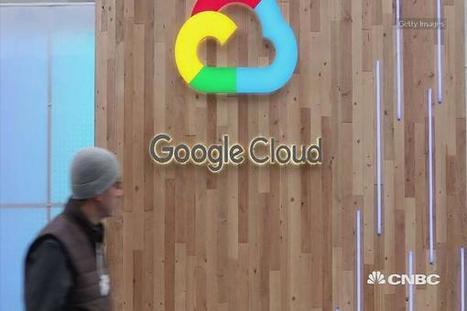
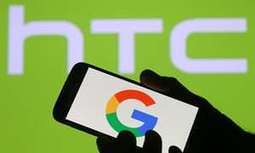
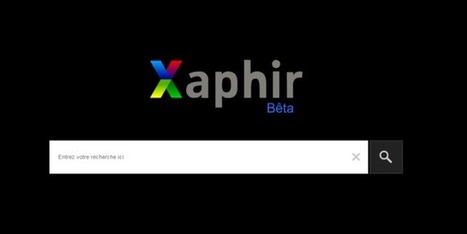
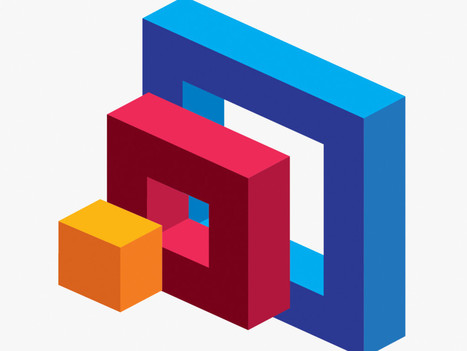







Looks like Chromium is no longer "la coqueluche"...